
A dam destroyed their river. 61 years later, two First Nations fought for justice
A new documentary, Nechako: It Will Be a Big River Again, dives into how two...
During Taylor Bachrach’s 2018 mayoral campaign in Smithers, B.C., vandals drew a lurid image on the picture of his face on one of his signs. Instead of replacing the sign, Bachrach and his team printed a large sticker in the shape of a Band-Aid and used it to cover the profanity.
Bachrach’s approach to politics is similarly pragmatic. After three consecutive terms as mayor of Smithers, he decided to run for the NDP in the federal election when longtime NDP MP Nathan Cullen announced he was stepping down.

Sometimes a Band-Aid solution can be a good thing. Rather than replace a defaced sign, Bachrach simply covered the graffiti with a Band-Aid. Photo: Marty Clemens / The Narwhal
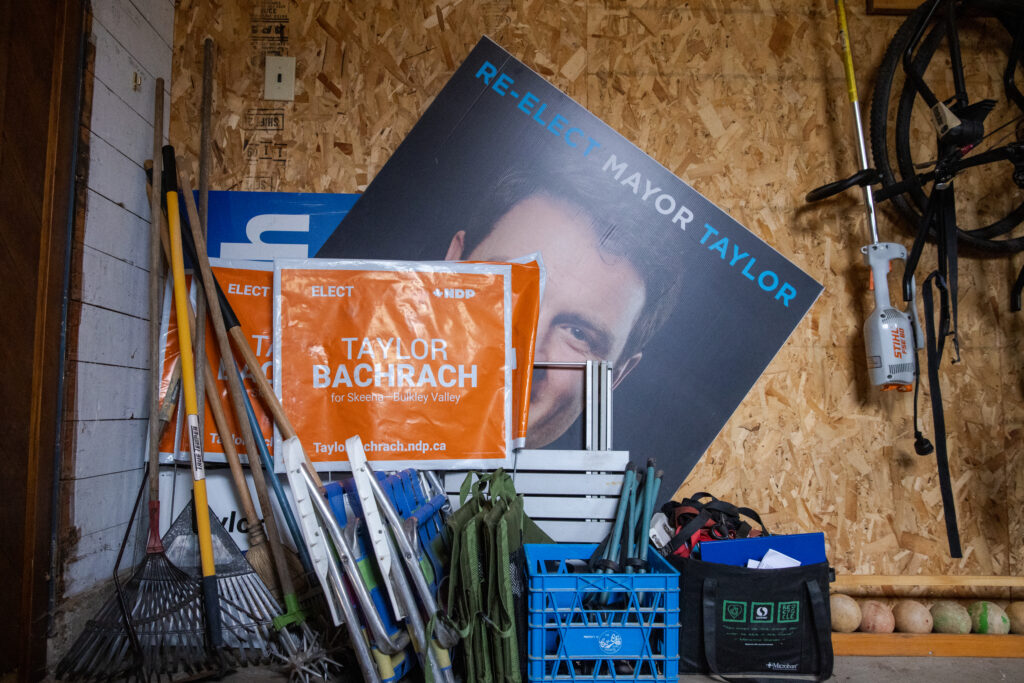
Bachrach was mayor of Smithers from 2011 to 2019 before entering federal politics. Photo: Marty Clemens / The Narwhal
Shortly after Bachrach won the election with 41 per cent of the vote, his riding made international news as the conflict between Wet’suwet’en land defenders and Coastal GasLink escalated, prompting a series of rail blockades and solidarity protests across the country. After four months in office, the coronavirus pandemic hit Canada and he found himself searching for creative ways to serve his constituents.
A backcountry enthusiast, the 42-year-old Skeena-Bulkley Valley MP champions the rural lifestyle and the landscapes that define the vast region he represents. He drives his electric car to meet with constituents and is often seen cycling the streets of his hometown of Smithers.
One year in, Bachrach spoke with The Narwhal on Wet’suwet’en territory in Smithers about an unconventional first year representing northwest B.C. in Ottawa.
A lot of politics is timing and circumstance. I found myself running for mayor [in Smithers] somewhat unexpectedly after being asked by a former mayor. That was when the Enbridge oil pipeline was a huge issue for this region and many people in Smithers were looking for a mayor that was willing to speak out against it. I believed really strongly that it wasn’t in our long-term best interests.
That was one of the strongest issues during that campaign and ended up dominating the region’s politics for a number of years. Local government is an opportunity to create change and it’s an opportunity to work with our neighbours to shape communities and make them the places that we want to live in, make them more inclusive, make them more vibrant, more sustainable.
This opportunity to represent the region federally was an opportunity to work on some of those broader issues in a way that would create the context for that community change to happen as well.
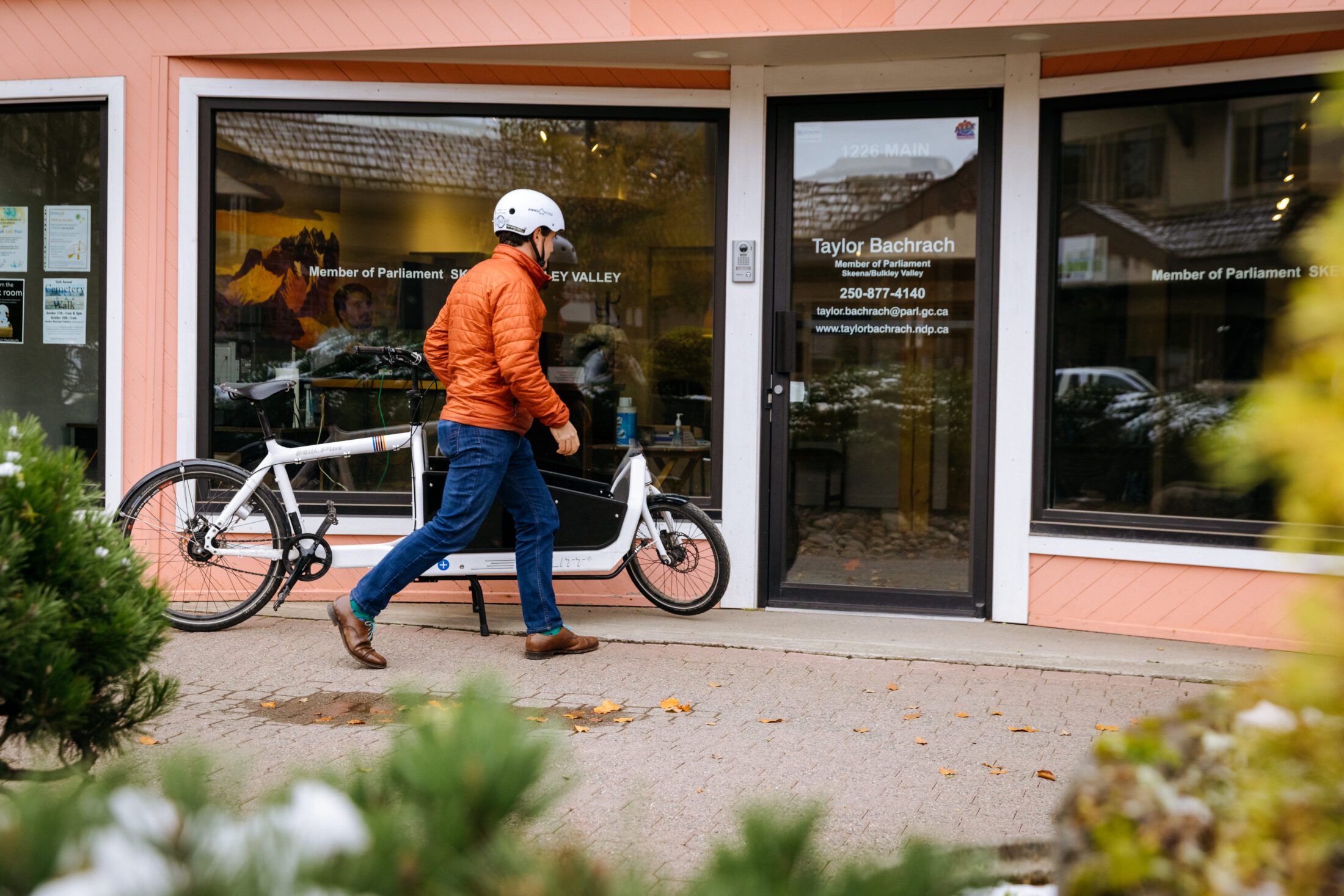
Bachrach believes it’s important to show up in communities and can often been seen biking or driving his electric car to meet with constituents. Photo: Marty Clemens / The Narwhal
It’s been an interesting transition from the community level, where there’s such a direct relationship between your decisions politically and actual changes on the ground in people’s daily lives. And sometimes that cycle is a matter of weeks or months. There are small budgets and limited jurisdiction, but it is a very intimate form of politics.
At the federal level, we have an opportunity to create huge change and to really have an impact on some of the most important issues that we face together, issues that do affect people in their daily lives and that show up in our communities in a very tangible way. But linking that 30,000-foot view of federal politics to the community level is the key opportunity of this role — helping people see their daily lives in the decisions that are made federally.
And we face some huge issues as a country and as a world. It’s not a small challenge. Sometimes I find my head spinning a bit.
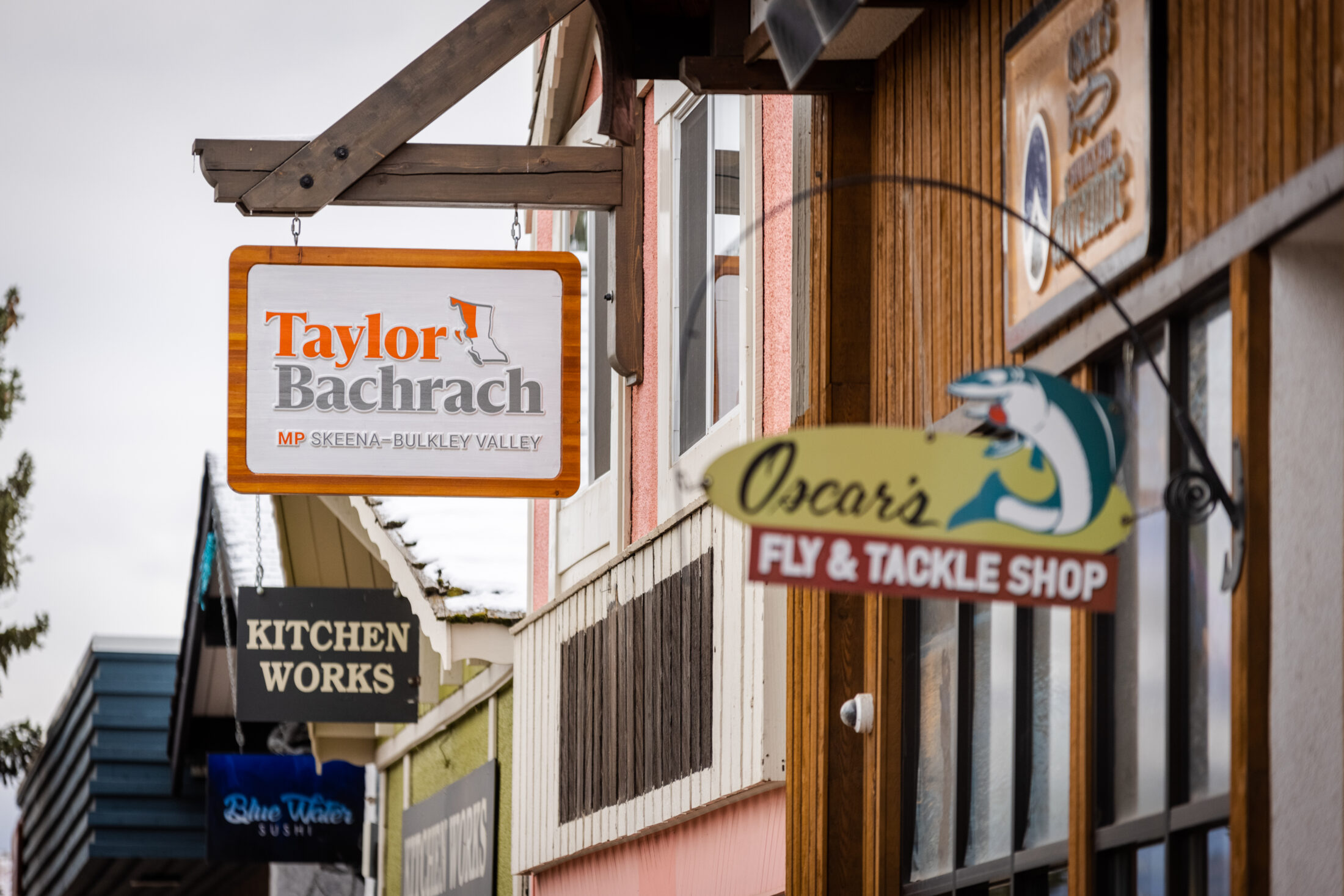
Bachrach’s office is on the main drag in Smithers, next to several businesses that have suffered as a result of the pandemic. Photo: Marty Clemens / The Narwhal
I do spend a lot of time on the road. I’m really committed to showing up in communities.
An Elder [recently told me] that her grandmother would always tell her that it’s important to show your face.
“I spend a lot of time reflecting on the common threads that bind us together as a region.”
Of course, in a riding that is 300,000 square kilometres and somewhere around the size of Poland, that can prove challenging, especially during a pandemic. It’s still the bottom line for an MP in Skeena to show up.
[I] have this incredible privilege of being able to connect with people in their home places and to hear from them: what their struggles are, what their aspirations are, what their hopes for the future are. There’s a real breadth to what [I] hear. I spend a lot of time reflecting on the common threads that bind us together as a region, across all of those community experiences, across all of that diversity.
We sat for the first time in early December last year — just for a short while before the Christmas break — and then I was back in January, February, part of March. It was interesting how quickly things went from relatively normal to being in the midst of a crisis.
As people started to grapple with what this all meant, businesses were closing and my team and I were finding new ways to work and serve people. From then on, the focus of our work really was supporting people in the pandemic, supporting people who’d lost their income, supporting communities that were grappling with how to maintain community function in very different conditions and supporting small businesses that were struggling with a sudden loss of revenue. And that has really been the dominant area of work for the past number of months.
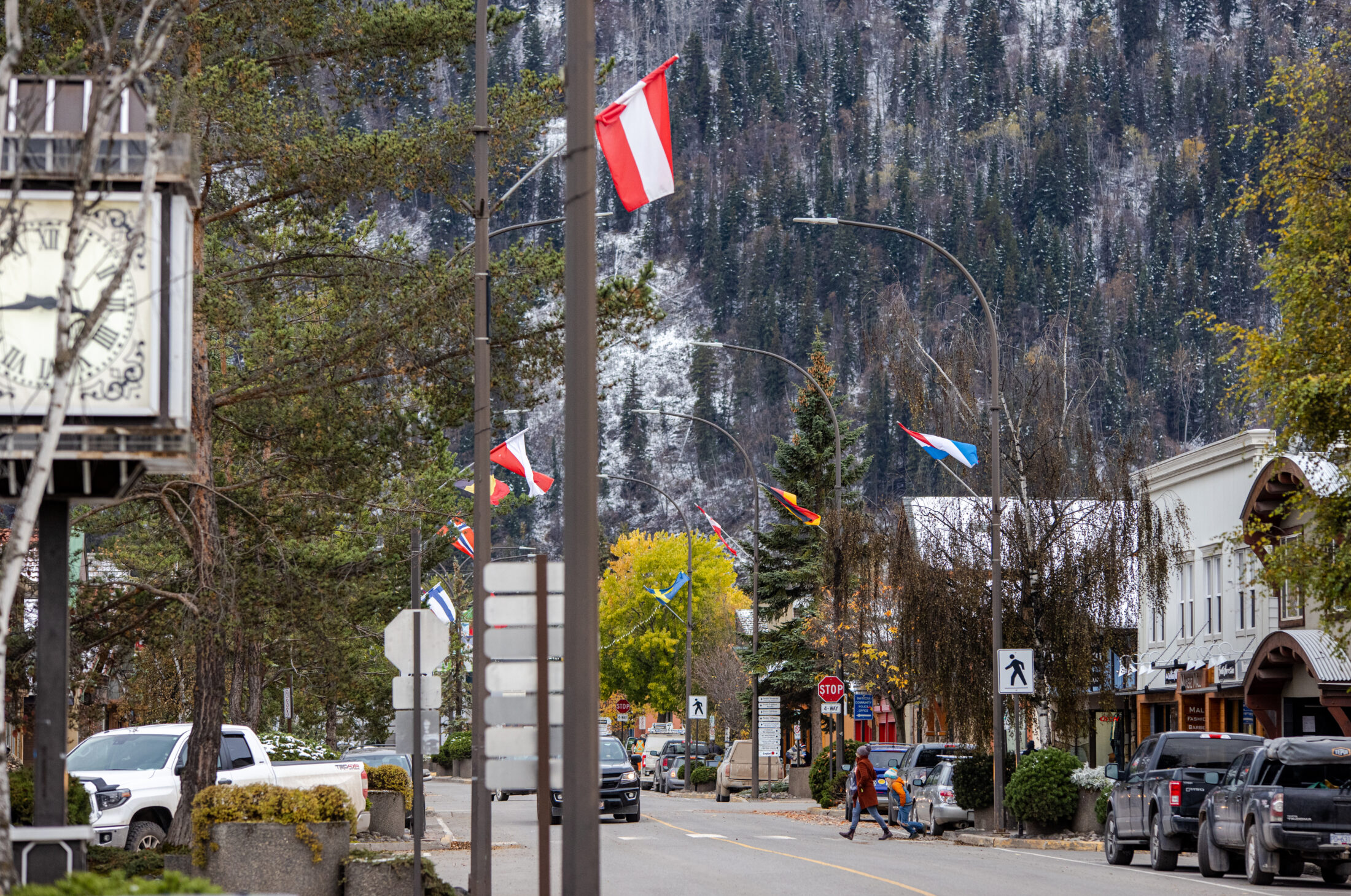
Bachrach is passionate about advocating for small rural communities such as Smithers. Photo: Marty Clemens / The Narwhal
Thinking about accomplishments, we haven’t had a lot of legislative time in the House but we are working in the background on some legislative initiatives. One of the areas of the work that I’m really passionate about is advocating for small rural communities who have largely been left out of the national conversation. Canada is a rapidly urbanizing country and yet we’re a country where rural lifestyles are celebrated as an important part of the national fabric, and the blunt truth is we do very little to support small places and rural places and northern places. And there are a few places in Canada where that reality is more stark than in northwest B.C.
“It’s a real privilege to be in leadership at such an important time in our country’s history when we’re dealing with immense challenges and talking about some of the most important issues.”
Across this region, there are a huge number of very small communities. A good deal of the population lives in small villages, towns and even more rural places. I grew up in a very small rural place, so those places are close to my heart.
It’s been a whirlwind, a very interesting first year. I’ve had some people express sympathy that I’m taking on this role at such an unusual time and their reasoning is often that they feel like it would be nice for me to have more conventional context in which to learn the ropes and get my feet under me. I see it a little bit differently. I think we’re living in a powerful moment and it’s a real privilege to be in leadership at such an important time in our country’s history when we’re dealing with immense challenges and talking about some of the most important issues.
It’s been an unusual time to take up the position because the usual travel schedule has been thrown out the window. But at the same time, it is a big thing for my family and for me to take on, and we’ve committed to rolling with it, figuring it out as we go. I have an incredible partner who’s tremendously supportive and is a huge part of this venture. We are continuously checking in. And my two teenage daughters are also obviously a big part of things.
I was starting to get into the rhythm of commuting from one side of the country to the other. Then the pandemic hit and I found myself working everyday from the kitchen island in our house here in Smithers and seeing more of my family, frankly, than I have in a decade.
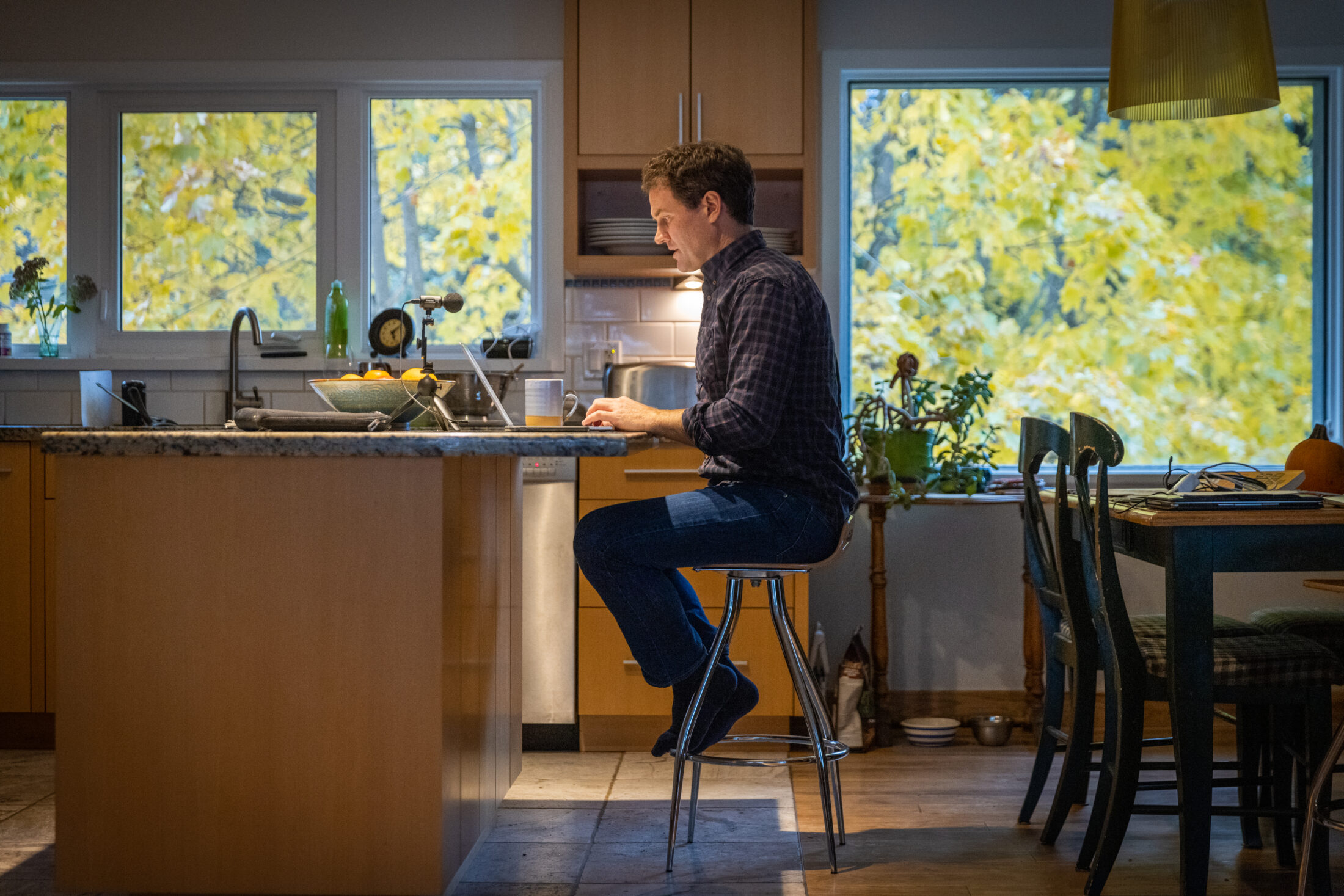
Politicians — they’re just like us. Bachrach spent several weeks working from his kitchen island with his family at home after the pandemic hit. Photo: Marty Clemens / The Narwhal
The kids were at home, my partner, Michelle, was working from home, I was working from home. It’s an experience that lots of families have had over the past number of months and it takes a lot of patience and forbearance and compassion for each other to get through it.
After about six weeks of that, I was encouraged to consider working out of my constituency office because I tend to be a bit of a loud talker, especially with the headphones on. I’m taking it day by day, and what the future holds remains to be seen.
At different points in time, there have been attempts to come up with some sort of a formula that would allow us as a region to put our values into one end of the machine and have an answer come out the other end. I think that’s naive, given the complexity of the issues and given the complexity and diversity of our region.
These issues around development are becoming more complex not less. What 20 or 30 years ago was really a conversation about local benefits and local impacts now has the added context of global challenges, climate being the most profound of those.
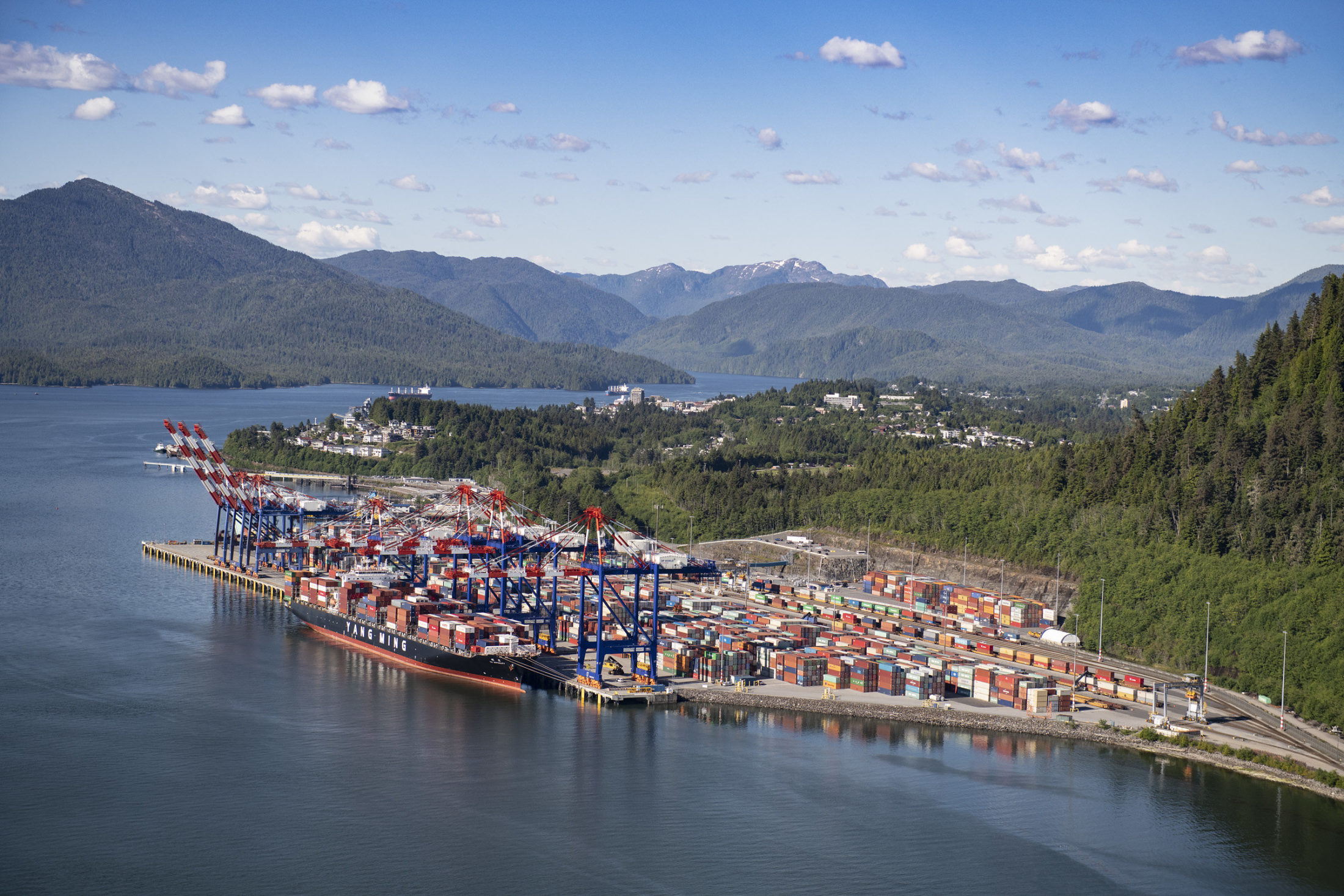
Northwest B.C. is home to many proposed industrial projects, including an expansion at the Prince Rupert port that would allow it to grow its container shipping business. Photo: Prince Rupert Port Authority
I think the approach is to try to do a good job of listening. Politics can involve a lot of talking. Sometimes, especially when the answers aren’t immediately obvious, there seems to be more talking than listening as a way to provide cover for that.
“We have to be open-minded to the role that resource development plays in the region.”
When I’m meeting with a representative of a company that has just landed in town and has some idea that they think is a win-win for everyone, part of that conversation is trying to shed some light on what this place is that they’re coming into, what the shared values are and what some of the recent history is.
At the same time, we have to be open-minded to the role that resource development plays in the region, the potential for good projects to take place. Inherently, the path forward involves difficult conversations and, at times, trade-offs. And that’s part of the art of living together.
The most immediate discussion is around the project being built in Kitimat. My commitment during the election and my ongoing commitment is to work with communities and with Indigenous nations to make that project as good as it can possibly be.

The site of the LNG Canada project in Kitimat, B.C., in 2017. Photo: Garth Lenz / The Narwhal
When it comes to the larger question, there are three main criteria that I think every industrial project needs to meet. One, it needs to deliver local benefits for local people. Two, it needs to fit within the context of our provincial and national climate targets. And three, it needs to have consent from Indigenous groups.
I acknowledge there’s a lot of complexity and there are a lot of people with more experience than me working on some of those complex aspects where the contradictions exist. The broad framework that I go back to is our party is a strong advocate for bringing the United Nations Declaration on the Rights of Indigenous People into Canadian law, moving towards a future where there is more clarity and more certainty when it comes to the role of Indigenous people in decision making and more clarity around what consent means in a practical way.
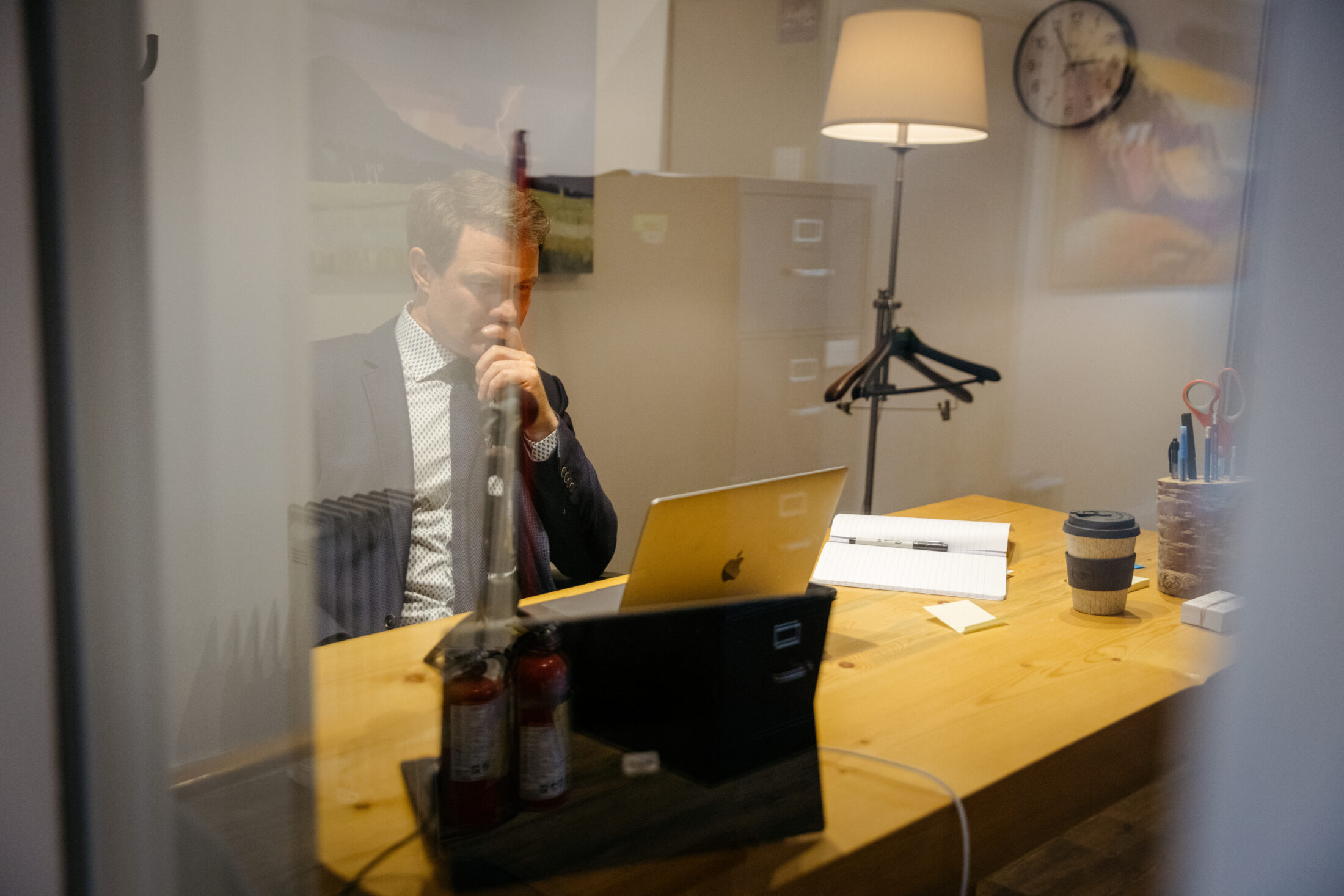
Bachrach says industrial projects in the region need to meet three criteria: deliver benefits to local people, fit in with provincial and national climate targets and have consent from Indigenous Peoples. Photo: Marty Clemens / The Narwhal
It’s been a very challenging one for this whole region. The Wet’suwet’en are at a really difficult place in their history. And they’re engaged in some really important governance work and internal discussions around how they move forward. More than anything, I feel like my role as a regional representative is to ensure that they have the space to do that important work. Sometimes I feel like expressing too strong of a view or landing too definitively on some of these sensitive issues actually does a disservice to that process.
I spoke to this in Parliament. I stand by those words. I’ve had the immense privilege of working with the Wet’suwet’en for the past 15 years and I hold those relationships really close to my heart, which is why it’s difficult to see them at a challenging spot in their communities. I want what’s best for them. Ultimately, it’s difficult to see a community that’s fractured. I think about folks a lot and I hope for the best.
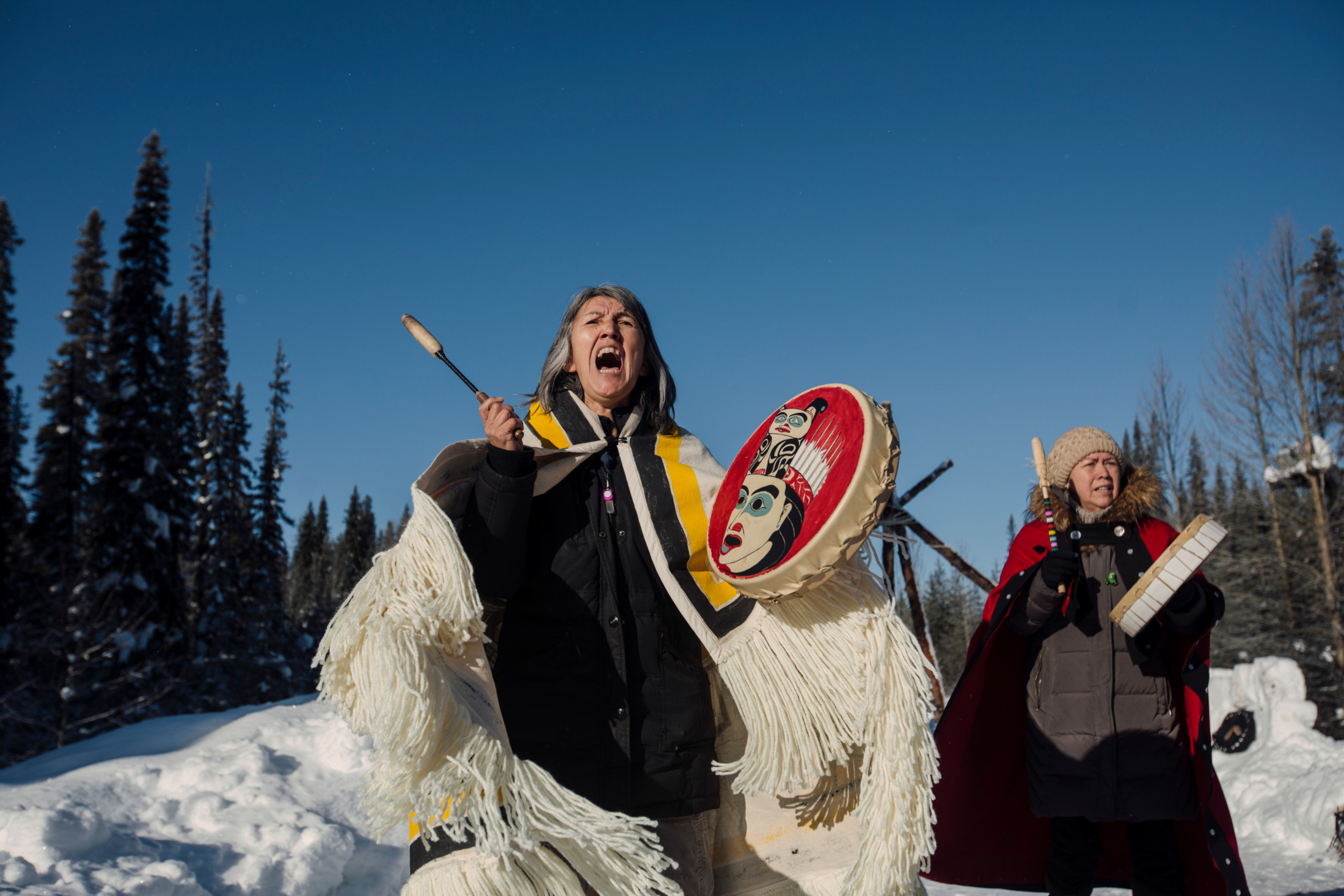
Chief Howilhkat, Freda Huson, left, and her sister, Brenda Michell, stand in ceremony while they wait for police to enforce Coastal GasLink’s injunction in February 2020. Photo: Amber Bracken / The Narwhal
I’m not sure we’ve ever seen the kind of solidarity and unity that we saw in this region with the grassroots uprising against the Northern Gateway pipeline and the idea of tanker traffic on our coast. And if Erin O’Toole thinks it’s going to be a cakewalk lifting that moratorium, he has a wake-up call coming for him. I talk frequently with people up and down the coast and there is very little appetite to see crude oil supertankers in those waters. There are a lot of issues on which people disagree, but the unity around that one was pretty powerful.
I know that the Liberals have promised to review the legislation after five years. I’m not sure that unearthing it and going through that process again is going to be terribly useful because I imagine we would arrive at the same outcome. I certainly hope that we would.
We’ve been talking about oil tankers on the coast for over 40 years — longer than I’ve been alive. And throughout those many decades, the values and the perspective of the people of the north and central coast are pretty clear. But if [O’Toole] needs the education, I’m sure people will be happy to provide it.

There is very little appetite to see crude oil supertankers in northwest B.C. waters, according to Bachrach. Photo: Prince Rupert Port Authority / Facebook
Thinking nationally, there’s a disconnect between what the government says it’s going to do and what actually gets done. You can only blow by targets so many times before the people you represent start to question whether you take the issue seriously at all. We need to see the federal government take some serious and bold steps on the climate front not only because we need to show future generations that we are serious, but also because there’s a real risk that Canada gets left behind all together.
On the regional level, the climate conversation looks a bit different. We’re seeing the impacts of climate change in a profound way on a daily basis in this region. I was in Gitanyow yesterday and spoke with this fellow and the first thing he said was, ‘Taylor, we’re seeing climate change all around us. We’re seeing it in the weather, we’re seeing it in the fish, we’re seeing it in the wildlife, we’re seeing it in the river — and we’ve got to do something.’
“You can only blow by targets so many times before the people you represent start to question whether you take the issue seriously at all.”
A lot of the conversation regionally is going to be around adapting to changes that are already coming and finding ways to make our communities more resilient.
Thinking about our region’s long-term economy and looking down the road at where the world is going, [we need to be] trying to make sure that we don’t chain our economy too strongly to sectors that aren’t necessarily going to be a part of a decarbonized world. It’s a daunting challenge, but I can’t think of any work that’s more important.
This is the only real issue that we need to be looking at. All the other issues connect back to it.
There have always been different perspectives on what the future looks like in this region. There are people who are more and less concerned about the impacts of development on rivers and fish. But when you’re talking about what issues divide us and what issues bring us together, sometimes the answer is the same.
We can choose to focus on the differences and, admittedly, there are plenty if you look for them, or we can build on the things we hold in common. I believe strongly that the latter is a more fruitful place to put our energy. Granted, there are always going to be challenging conversations because we all come to this with slightly different world views, different histories.
The evolving reality around Indigenous Rights and Title is challenging for some people. As we saw with the rail blockades, getting through those conversations together as a region is going to be some of our most important work.
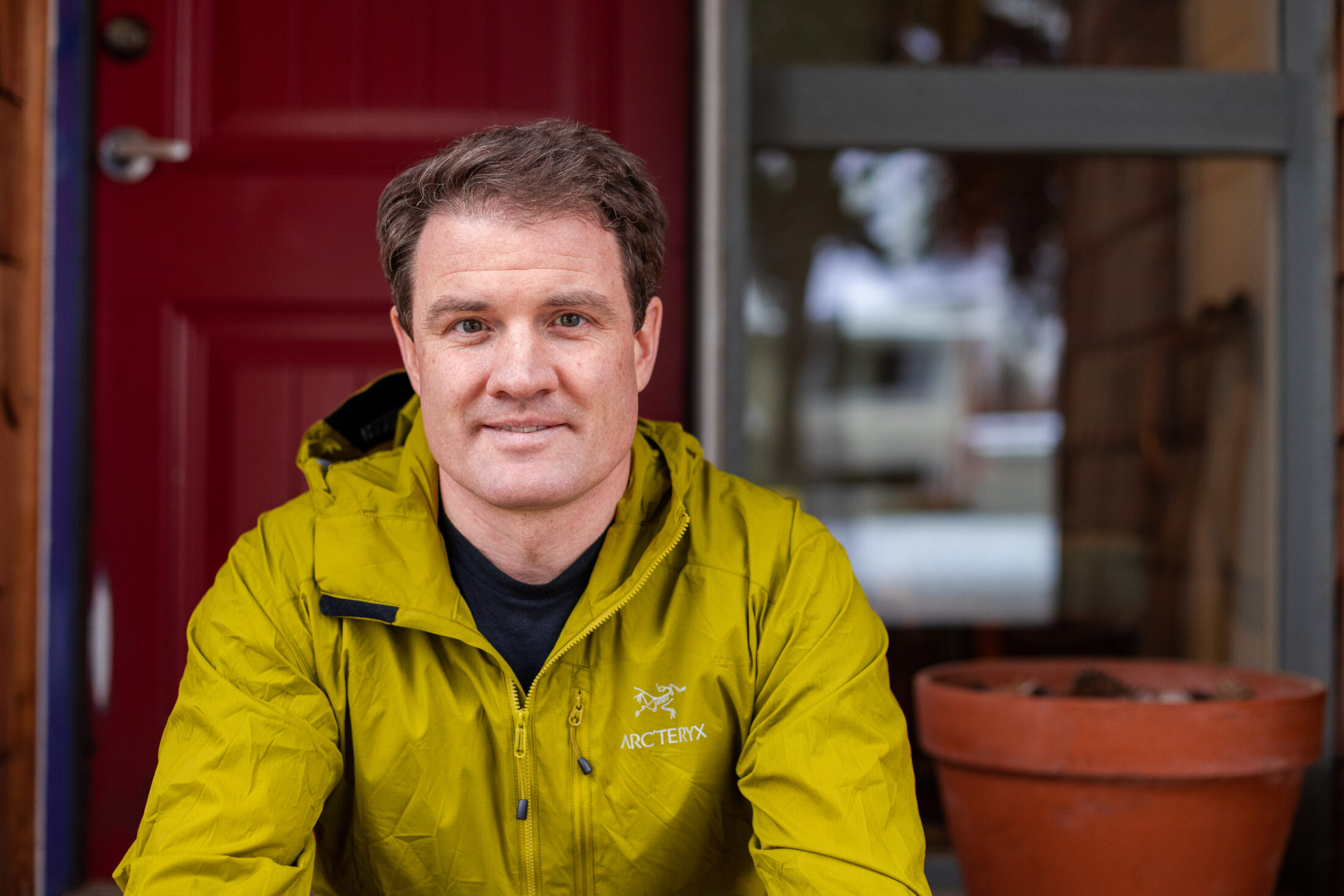
Bachrach says focusing on what we have in common can bring us together. Photo: Marty Clemens / The Narwhal
When you peel away all the layers and get down to the nub of it, in many ways we all want the same things. Working in local government, I got to see that on a lot of occasions. Because you encounter people as neighbours, because your kids go to school together, you can’t reduce people to caricatures. My concern is that the farther we get away from the politics of community, the more risk there is of reducing people to caricatures.
We see this in the United States really dramatically and, sadly, we see it creeping into our politics federally. Unfortunately, there is a political strategy that sees gains to be made by dividing people. When I look at the future, combating that and bringing all of our politics — at every level — back to the idea that we have more in common than we have differences is the most important thing we can do.
Get the inside scoop on The Narwhal’s environment and climate reporting by signing up for our free newsletter. Angello Johnson’s shoulders burn, and his arms...
Continue reading
A new documentary, Nechako: It Will Be a Big River Again, dives into how two...

Bracken was recognized for intimate portraits of residents of Fort Chipewyan, Alta., who told her...

A guide to the BC Energy Regulator: what it is, what it does and why...
